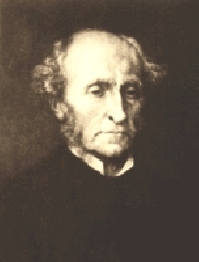John Stuart Mill
Mill, John Stuart
John Stuart Mill (1806-1873), a British philosopher and classical economist who suggested the ultimate need for a stationary or steady state economy. His work laid the intellectual foundations for ecological economists such as Herman Daly in the 1970s who argued that population growth, resource depletion, environmental degradation, and socioeconomic inequalities demanded a shift towards a steady state society. Mill is best known for his writings on moral and political philosophy (Utilitarianism, 1863), and on political economy (Principles of Political Economy, 1848). In Utilitarianism, Mill defends the view that we ought to aim at maximizing the welfare of all sentient creatures and that welfare consists of their happiness. He was a persistent advocate of political and social reform, such as proportional representation, the emancipation of women, and the development of labor organizations and farm cooperatives. Mill is viewed as one of the key figures in the school of classical economics, along with David Ricardo and Adam Smith.
